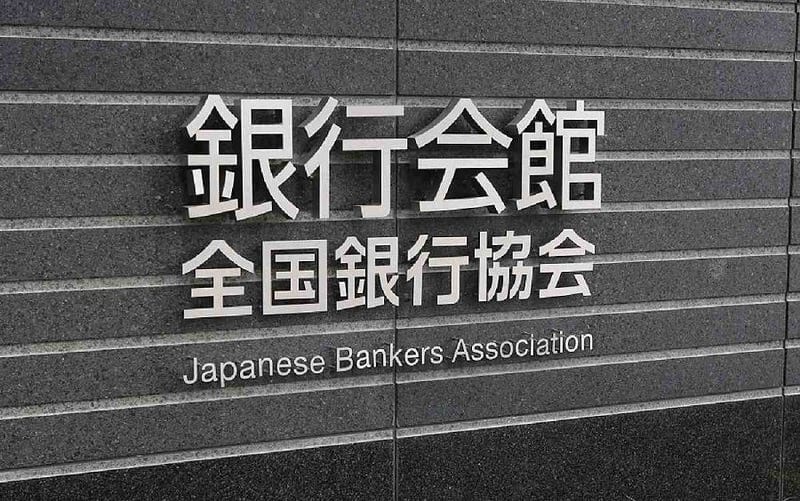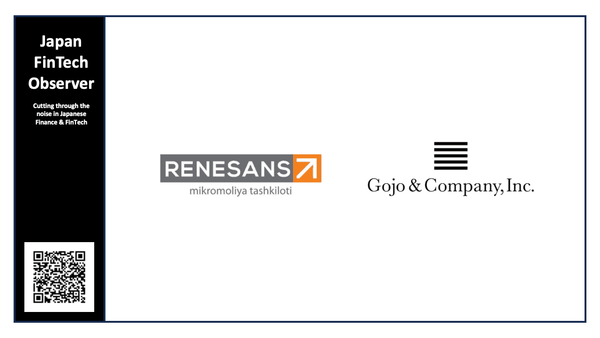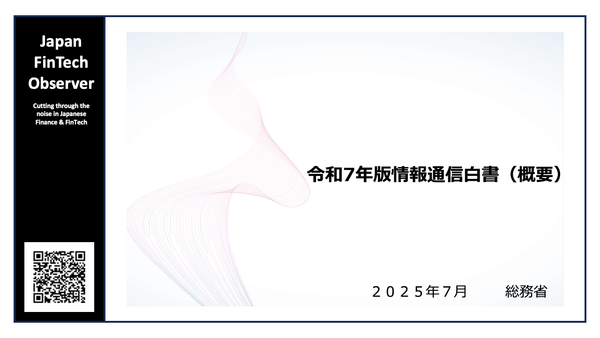JBA comments on the FSB Consultation Report related to Cross-border Payments
The Japanese Bankers Association (JBA) has provided comments on theFinancial Stability Board (FSB) Consultation Report: “Recommendations to…

The Japanese Bankers Association (JBA) has provided comments on theFinancial Stability Board (FSB) Consultation Report: “Recommendations to Promote Alignment and Interoperability Across Data Frameworks Related to Cross-border Payments”, released on 16 July 2024.
The Japanese Bankers Association (JBA) supports the Financial Stability Board’s (FSB) efforts and the general direction of the recommendations to address the identified frictions from data frameworks that pose significant challenges to improving the cost, speed, transparency, and accessibility of cross-border payments, while maintaining their safety and security. However, JBA believes that there are several points to keep in mind as discussions progress.
In particular, the JBA feels that it is necessary to give consideration to the system development by market participants to adopt legal entity identifiers. It would be difficult for market participants to consider the introduction of the identifiers without some support measures and incentives for market participants to invest in the system. For example, the JBA recognizes that there is a cost-effectiveness challenge in implementing standardized legal entity identifiers. Although the use of standardized identifiers improves data quality and transparency, for example, since there are only a few corporations in Japan that possess LEI, it is highly likely that the expected effect will not be achieved. In addition, the acquisition and maintenance of LEI is costly, and the development and maintenance of the system is burdensome, making it difficult to use LEI as a standard business practice.
Therefore, JBA believes that incentives for the private sector are necessary to promote the use of standardized legal entity identifiers. One of the purposes of the introduction of standardized legal entity identifiers is to reduce false positives of filtering in Recommendation 5 but it is unlikely to be very effective without an (globally unified) identifier which covers all legal entities engaged in cross-border payments. If such a unified identifier is adopted and attached to each entity listed in the sanction lists issued by national authorities, each financial institution can conduct transaction filtering using it. This would be helpful for reducing false positives only after such a situation is ensured.
On the other hand, from the perspective of streamlining the process of alerts verification, such a public identifier would enable more rapid and accurate verification, if some kind of public identifier is assigned to a legal entity, and if there is a database about the legal entity that can be accessed by each financial institution.
However, JBA notes that from the perspective of financial inclusion, it is important to note that mandating the inclusion of such public identifiers could potentially exclude certain jurisdictions of cross-border payments.
In addition, the JBA believes that the details of the “purpose of transaction” must be clear and confirmed in the case of inward payment. However, information is usually not clear in many transactions and it is necessary for the beneficiary bank to confirm this information with the recipient one by one, so frictions in the processing of cross-border payments could continue to persist even as the CPMI’s harmonised ISO 20022 data requirements are adopted. Therefore, the JBA feels that appropriate direction shown by the forum and others is needed to remedy this situation.
The JBA also notes that it is important to take into account the uneven regulatory expectations for sanctions compliance that create significant frictions in cross-border payments affecting the Roadmap objectives. The JBA believes that the recommendations sufficiently balance policy objectives related to the protection of individuals’ data privacy and the safety and efficiency of cross-border payments. However, as fraud methods are becoming more diverse and sophisticated day by day, case studies need to be updated continuously.
Finally, the JBA would like to encourage the public sector to promote innovation in data-sharing technologies to facilitate the reduction of related frictions and contribute to meeting the targets on cross-border payments in 2027.
In conclusion, the JBA supports the FSB’s efforts to promote alignment and interoperability across data frameworks related to cross-border payments. The JBA believes that the FSB’s recommendations have the potential to improve the efficiency and effectiveness of cross-border payments. However, the JBA also believes that it is important to address the concerns raised by the JBA, such as the need for incentives for market participants to adopt standardized legal entity identifiers and the need for the public sector to promote innovation in data-sharing technologies. The JBA is confident that by working together, the FSB and its stakeholders can create a more efficient and effective cross-border payments system.
Please follow us to read more about Finance & FinTech in Japan, like hundreds of readers do every day. We invite you to also register for our short weekly digest, the “Japan FinTech Observer”, on Medium or on LinkedIn.
We also provide a daily short-form Japan FinTech Observer news podcast, available via its Podcast Page. Our global Finance & FinTech Podcast, “eXponential Finance” is available through its own LinkedIn newsletter, or via its Podcast Page.
Should you live in Tokyo, or just pass through, please also join our meetup. In any case, our YouTube channel and LinkedIn page are there for you as well.




